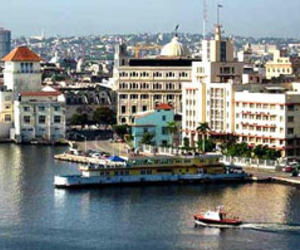Cuba allows visit with jailed American 'spy'
- Submitted by: manso
- Politics and Government
- 01 / 14 / 2011

By Isabel Sanchez Isabel Sanchez. HAVANA (AFP) – Cuba on Thursday allowed a senior US official to visit in jail an accused American spy whose prolonged detention has become a major sticking point in efforts to work towards normalized relations.
Alan Gross, a 61-year-old State Department contractor, was arrested in December 2009 on suspicion he was a US spy who was distributing cell phones and laptops to opponents of President Raul Castro's government.
Junior officials from the US mission in Havana have been allowed access to Gross, but Roberta Jacobson, deputy assistant secretary of state for Latin America, is by far the highest ranking official to meet him thus far.
"This morning Roberta Jacobson had the opportunity to meet with Alan Gross," State Department spokesman Philip Crowley told journalists in Washington.
"We remain very concerned about Mr. Gross's health, and it does bring a sense of urgency to why we believe very strongly he should be released as soon as possible."
US officials say Gross worked for a non-government organization contracted by the State Department to supply computer and communications equipment to civil society groups in Cuba.
Washington is protesting his detention and US officials point out that despite holding him for more than a year the Cuban government has yet trial him with formal espionage charges.
Arturo Valenzuela, the top US State Department official for Latin America, said recently that Washington had made it "very clear" to Havana that it will be difficult to reach any major agreements as long as Cuba is holding Gross.
The United States cut off diplomatic relations with Cuba in 1961, two years after Fidel Castro assumed power after overthrowing the American-backed dictatorship of Fulgencio Batista.
Recent administrations in Washington have tried to isolate the Castro government diplomatically while enforcing a 48-year trade embargo that Havana says has put a stranglehold on the island's economy.
Cuba lies just 90 miles (145 kilometers) off the Florida coast, but long gone are the menacing days of the Cuban missile crisis, when tensions over the island brought two nuclear-armed superpowers -- the United States and the former Soviet Union -- to the brink of war.
Raul Castro has announced plans to dramatically reform the Caribbean island's economy. US President Barack Obama has freed Cuban Americans to travel to Cuba and send remittances to relatives there. He also allowed telecommunications agreements to go forward and resumed a dialogue on immigration with Havana.
Regardless, Obama cannot lift the trade embargo unless Congress approves it, and with large Republican gains in November's mid-term elections, appetite for such a move is considered meager.
Lacking diplomatic relations, Havana and Washington do consult regularly on issues such as drug trafficking and illegal immigration.
Jacobson was in Havana for a fourth round of talks on immigration, which were relaunched at a meeting in New York in July 2009 after a six-year hiatus.
The immigration talks are aimed at promoting safe, legal and orderly migration between the two countries.
The United States currently reserves an annual 20,000 visas for Cuban nationals. This particular rule has been in effect for 17 years.
In 2010, 442 Cubans were intercepted at sea, down from 799 in 2009 and 2,199 in 2008, according to the US Coast Guard.
Source: http://news.yahoo.com/s/afp/20110113/pl_afp/cubausdiplomacyspy_20
Comments